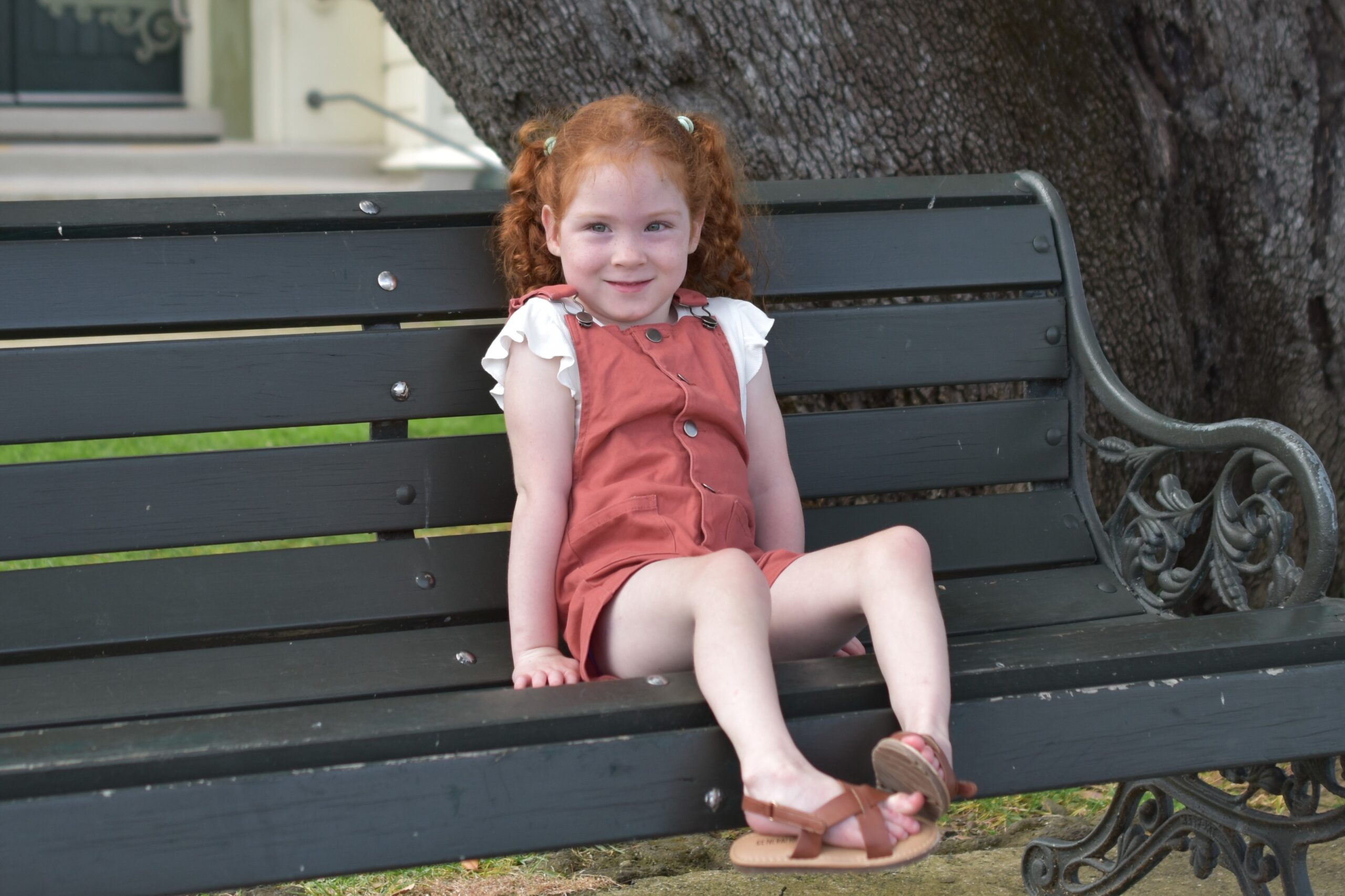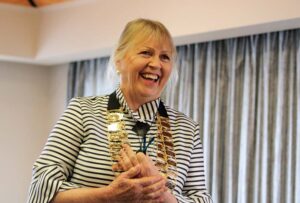Four-year-old Ruby Shelford has a cheeky grin that’s full of mischief.
It’s clear the Thames girl is as full of energy as any other preschooler. She also has cerebral palsy.
Ruby was born early at 32 weeks, and after a complicated delivery was diagnosed with the disability.
Although her condition is mild, she is unable to walk and suffers from stiff, painful muscles in her legs.

Cerebral palsy is caused by damage to the brain, and affects muscle control, movement and posture. It is a condition that requires lifelong treatment from an early age; Ruby needs physiotherapy twice a week, and has already undergone two surgeries on her hips.
Mum Doleena says it’s hard to see Ruby miss out on so many milestones.
“We obviously make our decisions on what we do depending on her really,” she says.
“For instance [if] we’ve got a party to go to at the skatepark. And she can’t ride a bike or she can’t hold herself on a bike. So it’s sort of like, do we go? Or do we say no, we can’t?”
“It’s hard as parents,” says her dad, Nick. “You do get to miss out. It’s hard to go to parks sometimes and watch all the other kids running around and your one can’t.”
For mild cases such as Ruby’s, one of the treatments is an operation called Selective Dorsal Rhizotomy (SDR). It is a permanent neurosurgical operation which reduces spasticity – stiffness – in the legs. If successful, Ruby will have a good chance of walking. The only catch – it’s not offered in New Zealand.
Doleena and Nick are fundraising to get her to St Louis Children’s Hospital in Missouri, United States, for the operation. There she will be under the care of the doctor who invented the operation, Dr Park.
“The surgeon only takes on patients that he thinks have a good chance of walking again,” Nick says. “The surgery will also lessen the chance of further surgeries later in life … and it should prevent a lot of pain.”
Getting a spot for the operation was not an easy task.
“She had to be assessed before we were accepted,” Doleena says.
“We had to go to the physiotherapist and do videos with her – different stances, sitting, stretching, x-rays.”
Ruby is scheduled to have her operation on April 28.
Afterwards, she will need to stay in the country for three additional weeks as she undergoes intensive physiotherapy, up to four times a week. Overall, the flights, accommodation, post-operative treatments and the operation itself will cost the family around $120,000.
Local businesses have contributed to the cause, which the couple are very grateful for, but they are still working hard to make up the shortfall of around $100,000.
Nick says it’s a daunting plan, but the outcome will be worth it to give Ruby the chance to experience the independence most children her age take for granted.
“There’s a good chance, it’s not guaranteed but it’s highly likely that she will be [walking] even if it’s just with a walker or walking stick,” he says.
“My hope for her is that she has that independent lifestyle where she can go to the grocery store and buy groceries, go to the toilet unaided … that’s a fairly normal lifestyle.”
“We want her to walk, basically. We want her to be independent, to have an independent life,” Doleena adds.
“It’s such a small thing, us not having to lift her. The goal would be to walk. Just to walk.”
DETAILS: To help Ruby, visit givealittle.co.nz/cause/operation-fight-4-ruby.
By ALICE PARMINTER, Public Journalism funded by NZ on Air





